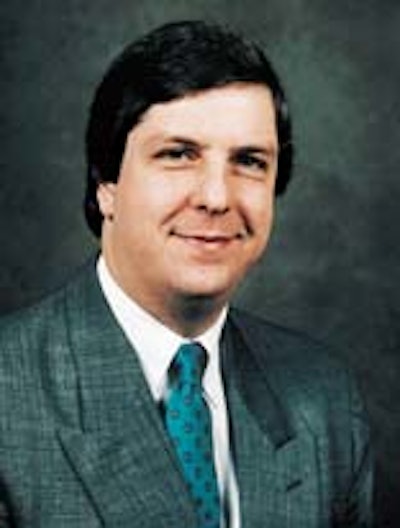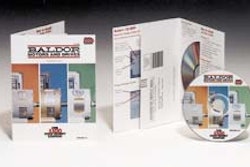Beginning next summer, the Packaging Machinery Manufacturers Institute (Arlington, VA) will embark on a two-part training program for both its members and for packagers that promises to make packaging equipment training more professional. Called the Training Certification and Accreditation Program, it consists of courses for trainers at member companies and also the accreditation of standard training programs conducted by those companies.
In the effort, PMMI is partnering with General Physics (Columbia, MD) a professional training firm whose people will administer the program and teach the courses. PMMI will maintain governance of the program, including resolving disputes over certification and accreditation and re-certification. The group’s Education and Workforce Development Committee worked with General Physics to ensure the courses will include the types of material that end users want and expect, says Maggie Elgin, director of education and workforce development at PMMI.
In fact, before the courses begin next summer, the Committee is planning a workshop that will combine PMMI members, end users and other interested parties to ensure the success of the training courses. The date of the workshop may be announced at Pack Expo International 2000, where the certification and accreditation program will be promoted.
“Companies are generating income by training people on equipment they didn’t make or supply,” says Glen Long, chairman of the PMMI Committee and president/CEO of Inex Vision Systems (Clearwater, FL). “We know there is an opportunity out there, and, because of their size, a lot of member companies simply don’t have the resources or the knowledge base to develop the right kind of training. As part of our global mission, PMMI decided that if we don’t do this, someone else will.”
The first part of the program will be four-day courses where instructors from General Physics will teach trainers how to effectively present training material. After passing a course-ending certification test, individuals who successfully complete the course will be certified for a certain period of time, after which they must be re-certified.
Additionally, member companies can apply to have their programs accredited, after undergoing an on-site audit by specialists from General Physics. The overall goal, says Long, is to assure end users that they will receive a certain level of training quality and consistency when they engage either a certified trainer or an accredited training program. Initially, accreditation won’t require a certified trainer, Elgin points out. That could change in the future.
An accredited program can offer end users the certainty that the training will include at least a standard level of information like safety, operator maintenance and cleaning, topics that Long says should be part of any machinery training course. The goal is to create the expectation in machinery buyers that training will be uniform. “We want buyers to expect that the same material and trainer skill level will be presented each time,” Long says. If a trainer comes in to teach a company’s first shift this week and a different trainer comes back next month to train the third shift, the company should be able to expect the same content and the same level of training quality.
“We’ll be promoting this program not only to our members but also to end users, so we’ll use a kind of ‘push/pull’ dual marketing,” Long explains. Not only will PMMI encourage members to participate by having their trainers certified, but the group will offer the training to end users that want to ensure in-house trainers are capable. “We expect that end users will eventually begin to look for the certification or accreditation symbols when they begin to evaluate different manufacturers of similar equipment,” he adds, comparing it to the assurance offered by the UL (Underwriters Laboratory) seal.
What the General Physics training courses won’t include is information about machinery. “We couldn’t possibly teach the trainers anything about their equipment,” admits Long. “At our course, the trainers will learn how to educate adults, how to deliver material in front of an audience, how to test for comprehension and retention, how to construct job aids and how to organize material so it can be presented effectively.”
As it began to work on the course program, the PMMI Committee eventually decided to target a mid-range competence. Had a sophisticated course been designed, the group feared too few members would participate. If the course had been too basic, its value would be minimized, Long says, and end users wouldn’t have any confidence in its effectiveness. Still, Long admits, the content is up to the company.
See the main story that goes with this sidebar: Suppliers recognize packagers’ training needs


























